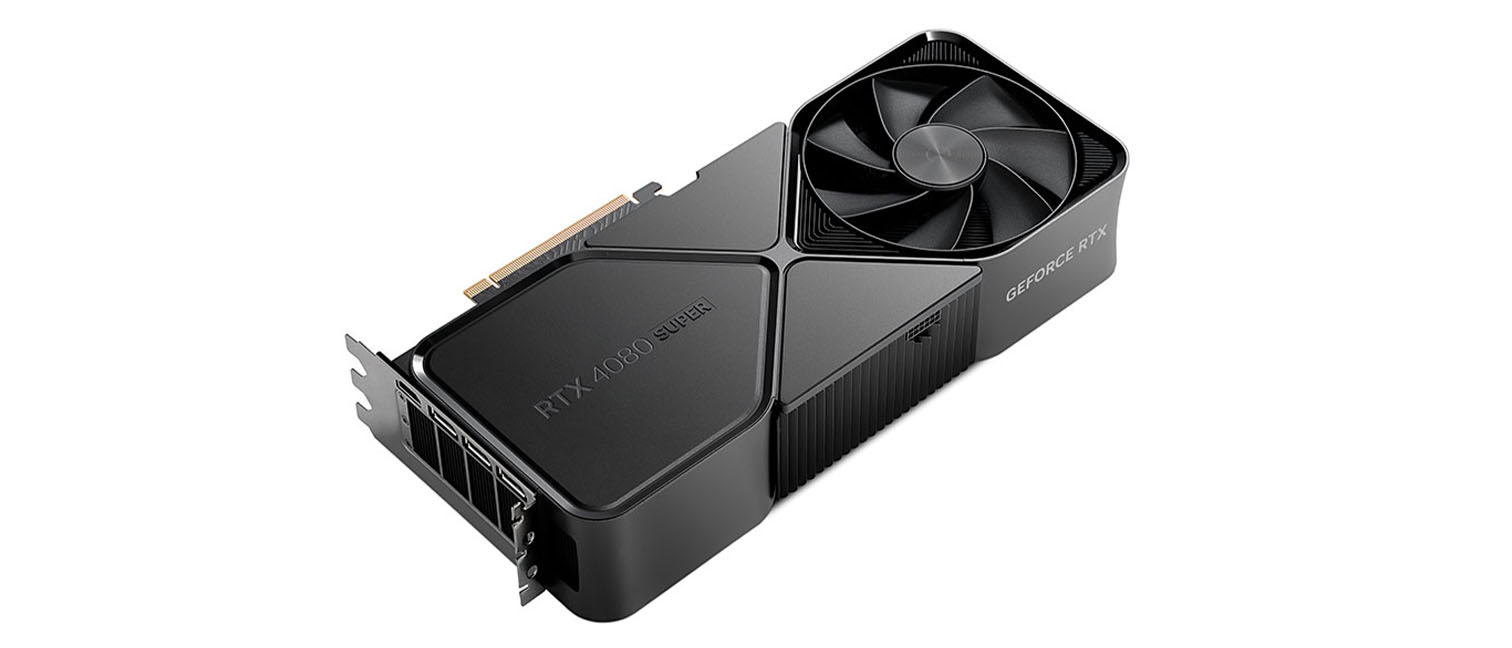Our Verdict
If you already have a 40 Series graphics card there’s little to warrant the upgrade. But if you’re still rocking a 30 Series then you’ll notice a huge difference, as this is one of the fastest GPUs on the market.
For
- Excellent build quality
- Great ray-tracing performance
- Support for up to four displays
Against
- Non-ATX 3.0 workstations need to use supplied power adapter
Why you can trust Creative Bloq
Nvidia releases cards at a fairly rapid rate, with each successive series being a leap forward over the last. This has been no different for its 40 Series cards, and the new Nvidia RTX 4080 Super. The jump in performance over the Nvidia 30 Series is impressive (and remain some of the best Nvidia graphic cards), although those older cards are still excellent options.
That said, the updates within the Nvidia 40 Series have been more incremental. Both the 4080 and 4090 are exceptional performers for gaming and content creation, with suitably impressive benchmark results.
So what’s offered mid-series by the addition of the Super versions? A small increase in performance is there for sure, plus a £200 price reduction compared to the Founder’s Edition. That probably doesn’t warrant an upgrade in and of itself though, especially as the hoped-for 20GB of VRAM hasn’t appeared, although the 16GB GDDR6X memory is a touch faster than before.
DLSS DLSS 3
Shader Cores Ada Lovelace 52 TFLOPS
Ray Tracing Cores 3rd Gen 121 TFLOPS
Tensor Cores (AI) 4th Gen 836 AI TOPS
NVENC 2x 8th Gen with AV1
VRAM 16GB GDDR6X
However, the Nvidia RTX 4080 Super is still one of the best-performing cards on the market, so for those who are currently using a 30 Series or older, the benefits are huge. Testing results show this as the second-fastest GPU within the GeForce range, beaten only by the goliath 4090, which costs significantly more.
The 4080 Super excels at ray tracing, so the rendering power user will be in for a pleasant experience. Results from Cinebench testing bear this out, and running games such as Cyberpunk 2077 show similarly impressive results.
Do keep in mind that this is a huge card. It’s big enough and heavy enough to ship with a support arm for your case to prevent any straining on your connections. It requires system power of 750 watts, and for those without an ATX 3.0 case there’s an adapter included for the power cables.
This is one of the best performing cards on the market
GPUs used to be easily discernible as either gaming cards or creative-use cards, but those lines are blurred these days.
Nvidia offers some of its cards the ability to use its studio drivers, which work differently from the standard consumer ones, making the GPU more suited for DCCs like 3D rendering and animation.
There’s no extra cost for this, but it does make a difference when using the GPU in this context, so well worth exploring.
If you’re one for glass-sided cases, with your workstation’s innards resembling Blackpool Pleasure Beach, then you’ll like the design here, as the Nvidia RTX 4080 Super is sleek, with a nice shell, a single large fan on cooling duties, and the logo glows softly in white. That large fan does a good job too and even under load isn’t obnoxiously loud, as some others can be. Meanwhile, linking up to your displays is done via the three DisplayPort connections and a single HDMI port, common with GeForce cards.
All in all, this is a fantastic card and one 3D artists can take advantage of. It’s one of the most powerful graphics cards out there, but probably not worth upgrading from the Founder’s Edition. (Read our guide to the best graphics cards to see more GPUs.)
If you’re on any GPU other than the 4090, this is the one to get. There aren’t huge leaps in speed, but the price drop makes it the best card under £1,000 and one of the best budget graphics cards when you factor in performance and value. (The price is $1,215 / £960 from the Nvidia store.)

Thank you for reading 5 articles this month* Join now for unlimited access
Enjoy your first month for just £1 / $1 / €1
*Read 5 free articles per month without a subscription

Join now for unlimited access
Try first month for just £1 / $1 / €1
out of 10
If you already have a 40 Series graphics card there’s little to warrant the upgrade. But if you’re still rocking a 30 Series then you’ll notice a huge difference, as this is one of the fastest GPUs on the market.

Rob Redman is the editor of ImagineFX magazines and former editor of 3D World magazine. Rob has a background in animation, visual effects, and photography.

